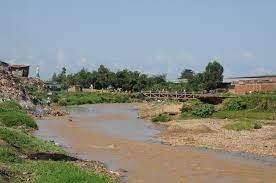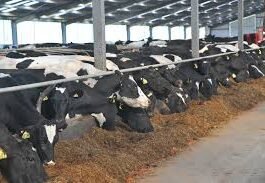Last Updated on March 6, 2023 by
Table of Contents
Introduction,
In conclusion, Singapore has developed a robust waste disposal system over the years. It is an example of how an effective waste management system can be developed in a densely populated city-state with limited resources. With the introduction of innovative recycling and composting initiatives, Singapore has effectively managed to reduce its solid waste output while ensuring that all its citizens have access to adequate and safe disposal practices. As such, Singapore serves as an excellent model for other countries seeking to improve their own waste management systems.
Types of Waste Disposal in Singapore
Singapore is a small island nation located in Southeast Asia, and its population of over five million people produces an enormous amount of waste. Fortunately, the country has a well-developed sustainable waste disposal system that efficiently manages the garbage produced. There are several types of waste disposal in Singapore, including incineration, landfilling, and recycling.
Incineration is one of the most popular methods for disposing of solid wastes in Singapore. This method involves burning away organic materials such as paper, plastics and food scraps at high temperatures to reduce their volume by up to 90%. The heat generated from the incineration process is then used to generate electricity or steam which can be sold for use by businesses or households. Incinerators are heavily regulated by the National Environment Agency (NEA) to ensure environmental safety standards are met during operation.
Landfill sites are another form of solid waste disposal in Singapore. Most large landfill sites located near residential areas have been closed due to environmental concerns; however, there are still smaller landfill sites scattered around rural parts of Singapore used mainly for disposing of construction debris and other non-hazardous materials such as soil or sand from excavation projects. The NEA also has strict regulations on these landfill sites to avoid potential contamination from leaching into underground water.
Challenges of Waste Disposal in Singapore
As one of the most densely populated countries in the world, Singapore faces unique challenges when it comes to waste disposal. With a population of 5.6 million people and a limited land area, the government must be creative in finding ways to manage and dispose of its growing waste volume.
The main challenge is that Singapore generates more waste than it can handle. According to data from the National Environment Agency (NEA), Singapore generated 7.7 million tonnes of solid waste in 2017, an increase from 6.7 million tonnes in 2012 – a trend likely to continue given that population growth is outpacing efforts to reduce per capita levels of solid waste generation. All this material has to be collected and disposed of somehow, but with limited land area for landfill sites and no incinerators available for burning trash, finding ways to get rid of it all becomes increasingly difficult as the years go on.
In addition, many materials are not recyclable or compostable – meaning they have no other option than landfill disposal – while much of what is recycled still ends up being shipped overseas due to a lack of appropriate processing facilities at home in Singapore. This presents further environmental concerns as transportation requires energy and resources that may not be readily available elsewhere; there’s also potential for pollutants such as hazardous waste.
Government Initiatives on Waste Management and Disposal
Waste management and disposal is a global issue that has been gaining more attention as environmental concerns continue to rise. Governments around the world are increasingly taking proactive steps to ensure that waste is handled responsibly and disposed of in an environmentally safe manner. In this article, we will explore some of the initiatives being taken by governments around the world to promote better waste management and disposal practices.
One of the most prominent government initiatives on waste management is the establishment of regulations regarding how trash should be disposed of. These regulations help ensure that all types of waste, including hazardous materials such as chemicals or medical waste, are properly handled and disposed of in an environmentally responsible manner. Additionally, many countries have implemented recycling programs that encourage people to reuse or repurpose materials they would otherwise discard as trash. This helps reduce the number of new materials being manufactured from raw resources and thus reduces environmental pollution from production processes.
Another popular initiative being implemented by governments worldwide is public education campaigns about proper waste disposal methods. These campaigns teach people about what types of items can be recycled, how hazardous materials should be safely managed, and how composting can help reduce landfill space needed for disposing of organic matter such as food scraps or yard trimmings. Additionally, these education efforts often include information about local organizations.
Solutions to Enhance the Effectiveness of Waste Management and Disposal
When it comes to waste management and disposal, there are many challenges that need to be addressed in order to ensure a safe and healthy environment. Inefficient waste management can lead to a range of environmental issues, including air pollution, groundwater contamination, and the build-up of hazardous materials in landfills. To help address these issues, it is important for individuals and businesses alike to take actionable steps toward improving the effectiveness of their waste management practices. Here are some solutions that can help enhance the effectiveness of your waste management system:
1. Implement Recycling Programs:
One great way to reduce the amount of waste produced is by implementing a recycling program. This will involve separating items into designated bins such as paper products, plastic containers, glass bottles, etc. so they can be recycled or reused instead of heading straight into landfill sites. Additionally, this will also help reduce energy costs associated with producing new products from raw materials as recycled goods require less energy consumption during production.
2. Educate Your Employees:
Educating employees on proper waste disposal practices is essential for effective long-term implementation. This means training them on how different types of materials should be disposed of correctly according to their respective categories (e.g., hazardous vs non-hazardous).
Conclusion
In conclusion, waste disposal in Singapore has been managed efficiently and effectively by the government. The country has implemented a wide range of initiatives and policies to reduce the amount of waste generated, as well as to ensure proper waste disposal. Furthermore, citizens are encouraged to be responsible for their own actions through campaigns such as the “Reduce Reuse Recycle” mantra. Ultimately, these efforts have enabled Singapore to remain one of the cleanest cities in the world.
Apart from that if you are interested to know about the Top Cigars in the World then visit our world category.




